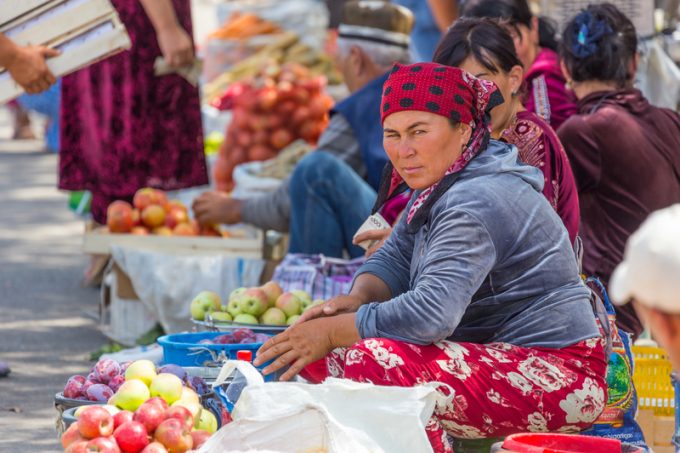CMA CGM purchases chartered Seatrade feeder quintet
French carrier CMA CGM has acquired all five of the 2,300 teu feeder ships it ...
GM: RAISING THE ROOF GGM: IN FULL THROTTLE GZIM: MAERSK BOOST KNIN: READ-ACROSSMAERSK: NOT ENOUGHMAERSK: GUIDANCE UPGRADEZIM: ROLLERCOASTERCAT: HEAVY DUTYMAERSK: CATCHING UP PG: DESTOCKING PATTERNSPG: HEALTH CHECKWTC: THE FALLGXO: DEFENSIVE FWRD: RALLYING ON TAKEOVER TALKODFL: STEADY YIELDVW: NEW MODEL NEEDEDWTC: TAKING PROFIT
GM: RAISING THE ROOF GGM: IN FULL THROTTLE GZIM: MAERSK BOOST KNIN: READ-ACROSSMAERSK: NOT ENOUGHMAERSK: GUIDANCE UPGRADEZIM: ROLLERCOASTERCAT: HEAVY DUTYMAERSK: CATCHING UP PG: DESTOCKING PATTERNSPG: HEALTH CHECKWTC: THE FALLGXO: DEFENSIVE FWRD: RALLYING ON TAKEOVER TALKODFL: STEADY YIELDVW: NEW MODEL NEEDEDWTC: TAKING PROFIT

Central Asian republic Uzbekistan is to obtain Global Good Agricultural Practices (GAP) certification as it looks to Europe to expand its perishables export business.
Its government believes acquiring certification and the permits to supply European countries will see weekly volumes exported by truck double from 15,000 to 30,000 tonnes.
The chief specialist of agricultural products at the ministry of foreign trade, Bekhruzkhon Saydullaev, told The Loadstar at Fruitlogistica in Berlin the process for certification was under way.
“Entering the European markets will be a big boost for our fruit and vegetable business, and we can offer very quick road connections,” said Mr Saydullaev.
“One market alone has said they would be looking at about 400 trucks – some 8,000 tonnes – of Uzbeki melons a week.”
To receive certification, producers of agricultural products must demonstrate adherence to GAP policies on hygiene and product handling. Uzbekistan’s move towards GAP follows the formation of a joint trading house with a German company assisting in the certification process.
“It is not cheap, but with strong demand already coming from one European destination, as well as increasing interest from Croatia, Estonia, Latvia and Lithuania, it is worth it,” said Mr Saydullaev.
“Without it, there are still places we can export goods to but certification enhances the image and reputation of our industry, which banned GM crops some 25 years ago.”
Uzbekistan’s current primary export destinations are Belarus, Iran, Latvia and Turkey, while China, which it sees as a major competitor, nonetheless imports sizeable quantities of dried fruit.
When asked how the planned doubling in exports would be transported, Mr Saydullaev said: “Rail operators are used to service our Russian and Kazakh customers, but trucking will be utilised to serve customers in Europe.
“This is because while rail may be cheaper in to Russia and Kazakhstan, the reliability of refrigerated units in trucking is stronger over longer journeys.”
Trucks may be responsible for some 95% of all Uzbeki agricultural exports, but the country’s air freight volumes have also experienced quite sudden and strong increases.
“To Korea alone in the last 12 months we saw air freight volumes jump from six to seven tonnes a week, to more than 10 tonnes,” said Mr Saydullaev.
“This growth has been in response to a more comfortable service offered by the airline – and it is not just Korea, we also use air to ship our goods to Dubai.”
Comment on this article